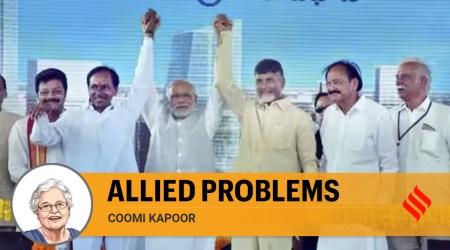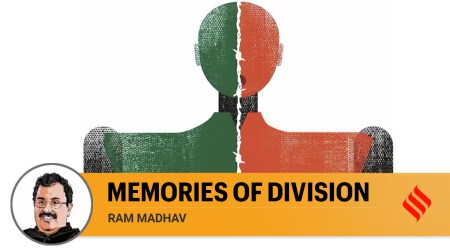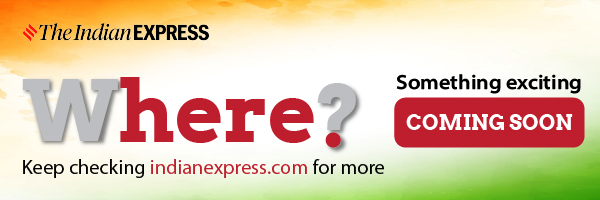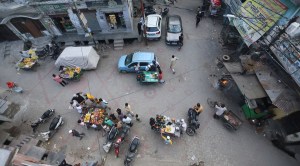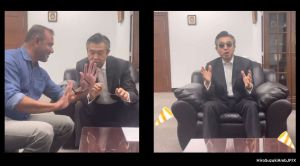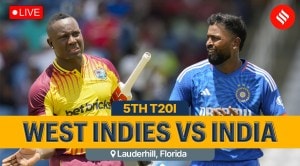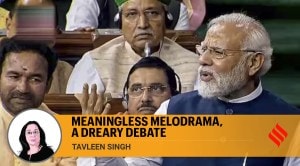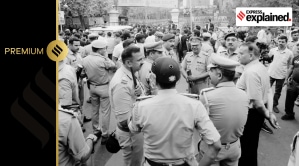P Chidambaram writes: Aid and Advise
The BJP interpreted ‘constitutionality’ in a narrow manner and said that the Bill did not violate any provision of the Constitution. The Opposition argued that the Bill was unconstitutional on several grounds. It is wise to leave the last word to the Supreme Court.
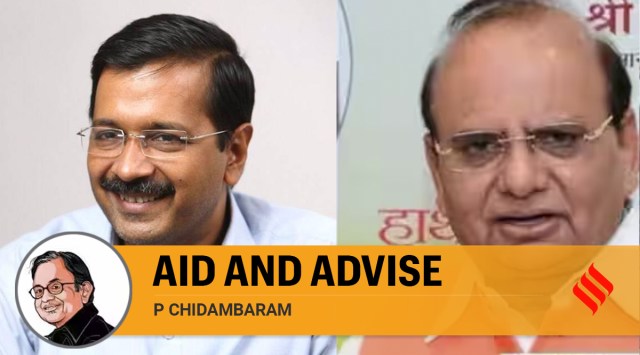 The debate on the Delhi Bill was on expected lines. The BJP interpreted ‘constitutionality’ in a narrow manner and said that the Bill did not violate any provision of the Constitution. (File Photos)
The debate on the Delhi Bill was on expected lines. The BJP interpreted ‘constitutionality’ in a narrow manner and said that the Bill did not violate any provision of the Constitution. (File Photos)
The people of the National Capital Territory — in short, Delhi — are entitled to representative government. In 1992, Parliament granted them their wish and inserted Article 239AA in the Constitution of India. Since then, there have been elections held periodically to the government of NCT of Delhi (GNCTD).
The BJP won the first election, the Congress the next three. The BJP’s chief ministers Madan Lal Khurana, Sahib Singh Verma and Sushma Swaraj (1993-98) and the Congress’ chief minister, Sheila Dikshit (1998-2013) had no difficulty working with different Lieutenant Governors (LG) under Article 239AA.
Asserting Control
Keeping an eye on the Lok Sabha election of 2014, and to score points over the Congress and the newly formed Aam Aadmi Party (AAP), the BJP promised full statehood for Delhi in the Assembly election of 2013. It lost to the AAP. Elected to power in 2014, the BJP decided to exercise control over the GNCTD. However, the Supreme Court rejected the government’s interpretation of Article 239AA and laid down the law, once again, that real power vested in the council of ministers and not with the LG (2018).
Not one to give up so easily, the BJP persisted with the argument that control over ‘services’ (meaning government officers) vested in the LG. On May 11, 2023, the Supreme Court reaffirmed its view and held that GNCTD had legislative and executive power over ‘services’. Within days of the judgement, the central government promulgated an Ordinance to take control of the ‘services’. In the monsoon session of Parliament, government replaced the Ordinance by legislation and passed it in both Houses.
The debate on the Delhi Bill was on expected lines. The BJP interpreted ‘constitutionality’ in a narrow manner and said that the Bill did not violate any provision of the Constitution. The Opposition argued that the Bill was unconstitutional on several grounds. It is wise to leave the last word to the Supreme Court.
Westminster Model
In my view, the debate in Parliament missed the wood for the trees. The desired model of a government could vary from military dictatorship (latest example, Niger) to one-party dictatorship (China) to Presidential government (United States) to Presidential-cum-parliamentary government (France) to multi-party government (many countries of Europe) to elected autocracy (Hungary) to pure parliamentary democracy (United Kingdom). What did India choose when the Constitution was adopted? Unambiguously, it was parliamentary democracy of the Westminster-model.
The foundations of parliamentary democracy are an elected House of the People, members of parliament representing singular constituencies, a council of ministers with the prime minister (or the chief minister) at the head answerable to parliament (or the Assembly) and the parliament answerable to the people. Other constitutional bodies are created by the Constitution — e.g., the Supreme Court, the Election Commission, the Public Service Commission, etc. The civil service is constituted by the government according to need. Civil servants are appointed and answerable to the ministers of the government.
What is the role of the President or the Governor? He or she occupying the office is the Head of the State (HoS). The HoS is the symbol of formal authority, but enjoys no actual power which vests in the council of ministers.
The Law Declared
The question will arise, does the Constitution say that the ministers hold actual power and the HoS is only the symbol of formal authority? The answer is “yes” and lies in the three magical words “aid and advise”. These words have a special meaning in constitutional legal history. Aid does not mean running to the help of another person; advise does not mean offering solicited or unsolicited counsel. Aid and advise is the essence of parliamentary democracy.
The magical words are in Articles 74, 163 and 239AA of the Constitution in the context of the roles of the Prime Minister and the President, the Chief Minister and the Governor, and the chief minister of GNCTD and the LG, respectively. Babasaheb Ambedkar, explaining the meaning of the words, said, “The President ….can do nothing contrary to their advice nor can he do anything without their advice.” Justice Krishna Iyer pronounced “We declare the law of this branch of our Constitution to be that the President and Governor ……shall….exercise their formal constitutional powers only upon and in accordance with the advice of their Ministers save in a few well-known exceptional situations.”
The Bill passed by parliament last week turned parliamentary democracy on its head. A three-member Civil Service Authority consisting of the chief minister, chief secretary and home secretary (the last two appointed by the LG) will be vested with control of all aspects relating to government servants. The home secretary will convene the meetings and two members will constitute the quorum. Decisions will be taken by a majority. Even unanimous decisions of the Authority can be overturned by the LG. The inevitable result will be that the chief minister, in a parody of the famous television serial, may only say, “Yes, secretary”! The apt name for the Bill would have been Government of National Capital Territory of Delhi (Appointment of Viceroy) Bill, 2023.
The 3,29,41,309 people of Delhi (2023) witnessed the deadly blows to parliamentary democracy in GNCTD. As the gravely injured parliamentary democracy is wheeled into the emergency ward, the people of Delhi will fervently pray that the victim will be saved by the Supreme Court.
EXPRESS OPINION
Must Read
Aug 13: Latest News
- 01
- 02
- 03
- 04
- 05


